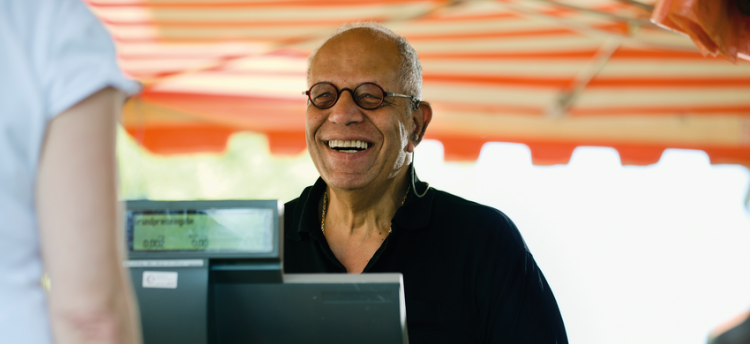A glimpse into the public perception of old age and ageing in the UK Within the last fifty years, the population pyramids of most European countries have seen clear changes in age structure, with Italy and Germany amongst the oldest societies in the world.[1] Looking at the United Kingdom, the median age has risen noticeably over the last two decades, from 37.5 years in 2000 to 40.2 years in 2019.[2] The share of persons aged 65 years or over stands now at almost 19% of the UK’s total population, resulting in an old-age dependency ratio of 28.9%—meaning that there are […]
Tag: stereotyping
Busting Myths About Older Workers #2
“In 2011 I took employment with a large financial organisation. It took being passed over for almost 20 roles, for which I was qualified and capable; before I realised that I was almost definitely being overlooked because of my age. This sapped my confidence and prompted me to resign and return to freelancing.”
In the second of our interviews with older workers we hear from Norma, who has had a varied career across a number of different roles and cities!
Busting Myths About Older Workers
Despite popular stereotypes suggesting that older workers have less to contribute than their younger counterparts, the reality is that turning 50 often signals a phase of maturity and confidence where knowledge, expertise and life experience intersect in a powerful way. Society and business can only benefit from making the most of older workers and their knowledge and capabilities. Unfortunately this is not yet reflected in the workplace where employment rates fall gently once people are over the age of fifty and fairly dramatically beyond the age of sixty. Over the next few months, Blume’s Alexander Stevenson will be challenging the stereotype by profiling several older workers who are using their experience to great effect in the workplace.
In the first of these interviews with older workers, we meet Carolyn, a journalist and copywriter.
Farewell to the Age Allies Programme!
“Next up, “Age Ally” Chris took to the stage to give an impassioned speech on the ways in which the Age Allies project had shaped his understanding of age and ageing – even as an older Londoner himself! Chris explained how he had thoroughly enjoyed working with Richard and his fellow Age Allies to help “plant a seed” in the minds of the workshop attendees.”
This month we said farewell to our Age Allies programme, which has come to an end after three successful years. Find out how our goodbye event “Age Allies: Legacy” celebrated the work of the project and suggested ways in which the learning from the project could be carried forward into future campaigns across the age sector.
Action Age Friendly Campaigns Updates
To help keep you up-to-date with our campaigning work, we’re very excited to be announcing a new bi-monthly campaigns newsletter – “Action Age Friendly”. Here’s all you need to know about how to sign up!
Age Allies Blog #8 – Age/ncy: Our Findings
In April of this year, Age UK London’s Age Allies project took part in “Age/ncy”, an intergenerational arts display organised by Flourishing Lives at Tate Modern. Of the course of the weekend, dozens of organisations from across London put on exhibitions, workshops, installations and performances that challenged stereotypical assumptions of older people.
We have now had time to reflect on the weekend as a whole and to assess all the information we received when running our workshops. Let’s take a look at some of the findings…
The Importance of Television for our Mental Health
“The UK has an ageing population. By 2030, one in five people in the UK (21.8%) will be aged 65 or over, 6.8% will be aged 75+ and 3.2% will be aged 85+. As many as 49% of older people (equivalent to over 5 million individuals) say their television or pets are their main form of company. Televison’s importance really can’t be exaggerated, especially for these people who, as they age, are increasingly likely to suffer loneliness, bereavement, illness and disability. TV doesn’t cure these struggles, but it can make them easier to live with.”
With the debate over the free TV licence for over-75s continuing to rage, we hear from Jolie Goodman about the importance of television for our mental health – especially as we age.
Making London an Age-friendly City
“Knowing where to start is a daunting prospect but thanks to last June’s announcement that the Mayor had signed London up to the World Health Organisation’s Age Friendly Community we have a strong platform to build on. Age UK London first called for London to sign up as an Age-friendly City ahead of the 2016 Mayoral Elections and whilst we now have a commitment from the Mayor it will be actions on the ground that decide whether we earn the right to call London an Age-friendly City.”
We’ve launched a brand new campaign to make London an Age-friendly City! Our new Campaigns Officer John McGeachy explains how we can achieve this.
Age Allies Blog #7 – Reflections
“The attitudes we hold to age and ageing are creating the world in which our future selves will live. We have the potential to make enormous positive changes for the benefit of everyone. As our population ages the consequences of inaction will have a profoundly negative effect on the health and social care system, our relationships, neighbourhoods and our economy. The inverse is also true. Being pro-active now will see a future that benefits all of us as we age.”
With funding for our Age Allies project set to finish in September, Programme Officer Richard Norman reflects on the project and society’s attitudes to age and ageing.
Reflections of Age/ncy at Tate Modern
“Armed with a dedicated group of volunteers, our Age Allies stall offered the chance for members of the public to reflect on what they’d witnessed at Age/ncy and to explore their assumptions and understanding of the ageing process.”
Last month we headed to Tate Modern to take part in AGE/NCY: Art, Ageing and Transition, an intergenerational arts display. Find out how we got on!










